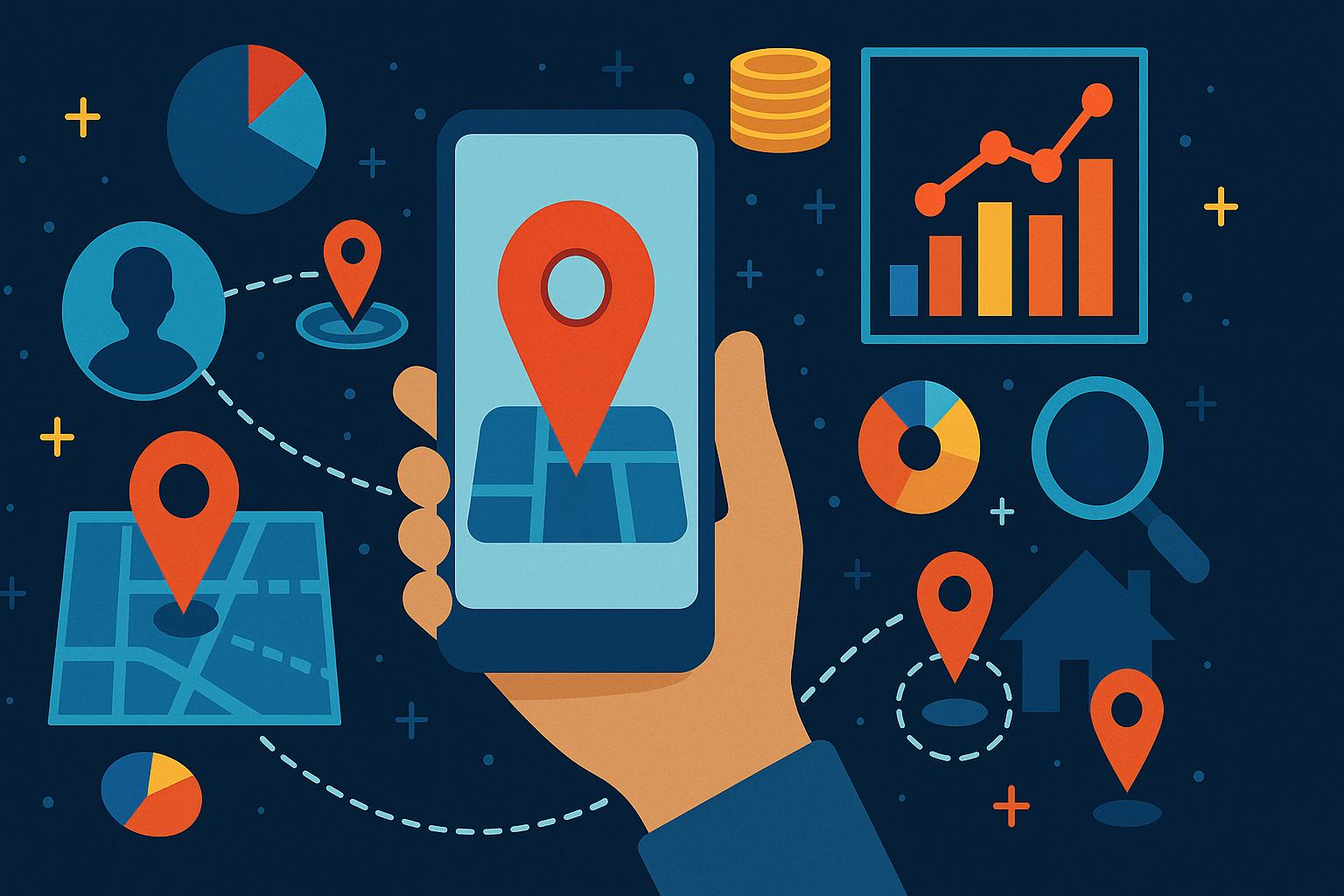Every time you unlock your phone, go for a walk, browse a store, or sit in traffic — you’re leaking data. Not just clicks or searches, but your precise physical location: where you are, where you’ve been, and where you’re probably headed next.
And there’s an entire $12 billion shadow economy built around it.
This isn’t a theoretical risk. It’s a real-time ecosystem of app developers, data brokers, hedge funds, government contractors, advertisers, and analytics firms — most of whom you’ve never heard of — quietly collecting, combining, and monetizing your movements.
It might sound nefarious. Sometimes, it is. But just as often, it’s meant to help you — to speed up your search, refine your ads, surface that one product you didn’t know you needed.
We’re living in a world where “privacy” doesn’t mean what it used to. That doesn’t mean we’ve lost — it means we need a new contract. One where data isn’t just extracted, but where the return on your digital footprint feels worthwhile.
From App to Asset: How Your Location Gets Sold
Let’s say you download a weather app. Or a coupon finder. Or a fitness tracker. You grant it access to your location — maybe “always,” maybe “only while using the app.” Seems harmless enough.
But behind the scenes, your GPS pings aren’t just helping you dodge rainclouds. They’re quietly sent to a location data provider. That provider may sell them to an aggregator, who combines them with other sources. Then the data makes its way to:
- Retailers analyzing foot traffic and shopping habits
- Hedge funds tracking factory activity to predict earnings
- Political campaigns profiling rally attendees for targeted outreach
- Federal agencies including the IRS and U.S. military
As The Markup has reported, this happens daily — at scale — in an industry with little oversight and virtually no obligations to delete or even anonymize your historical movements.
Real-World Applications: Spying for Profit (or Performance)
These aren’t theoretical concerns. Location intelligence is being used right now in ways most consumers never imagined:
- **Tesla Factory Surveillance \ A hedge fund used location data from Thasos Group to estimate how many employees were working overtime at Tesla facilities — informing their investment decisions.
- **Burger King vs. McDonald's \ In 2018, Burger King launched a stunt: if your phone was detected within 600 feet of a McDonald's, the Burger King app would offer you a 1¢ Whopper — then reroute you to the nearest BK.
- **Political Targeting \ Both Democratic and Republican campaigns have reportedly used location data to retarget and re-engage rally attendees.
- **Government Surveillance \ Reports from Motherboard and others confirm that agencies like Customs and Border Protection have purchased commercial location data — sidestepping traditional warrant requirements.
Once your location enters the marketplace, there’s no telling where it ends up. But more importantly, there’s no guarantee you’ll ever see the benefit.
"The Most Accurate in the Industry"
Data brokers proudly tout the size and accuracy of their datasets. One firm told investors it tracked “1.9 billion devices.” Others claim location accuracy to within a few feet.
But don’t confuse precision with permission.
Much of this data is collected through vaguely worded consent buried in Terms of Service agreements — or inferred from app behavior that users don’t fully understand. It’s one thing to share your location with a fitness app. It’s another to learn that your daily running route is now part of a national data product sold to advertisers or governments.
Even when anonymized, location trails can often be re-identified with startling accuracy — linking devices back to individuals based on patterns alone.
A Booming Industry, Blurry Ethics
What makes location intelligence valuable isn’t just where you are — it’s everything inferred from that movement:
- Where you dwell
- How long you stay
- Where you go next
- Who else is nearby
- How often you return
This is the backbone of modern location analytics: a suite of tools used to predict behavior, optimize retail layouts, streamline emergency response, and personalize consumer experiences.
But as the tools get sharper, the lines get blurrier. The collection and monetization of location data operate largely in the dark — without meaningful oversight, informed consent, or user control.
From Fear to ROI: A New Social Contract for Location Data
Location intelligence isn’t going away. It’s already baked into how businesses operate, how cities plan, how services respond, and how customers are served. The question isn’t how to stop it — it’s how to rebalance the equation.
Because let’s be honest: in most cases, the data isn’t being weaponized. It’s being optimized — for your shopping trip, your commute, your content feed. That doesn’t make it harmless. But it does make it useful. Sometimes even delightful.
So if we accept that the old notion of privacy is gone — that our presence in the physical world leaves behind a permanent digital trail — then the next logical step is demanding value in return.


